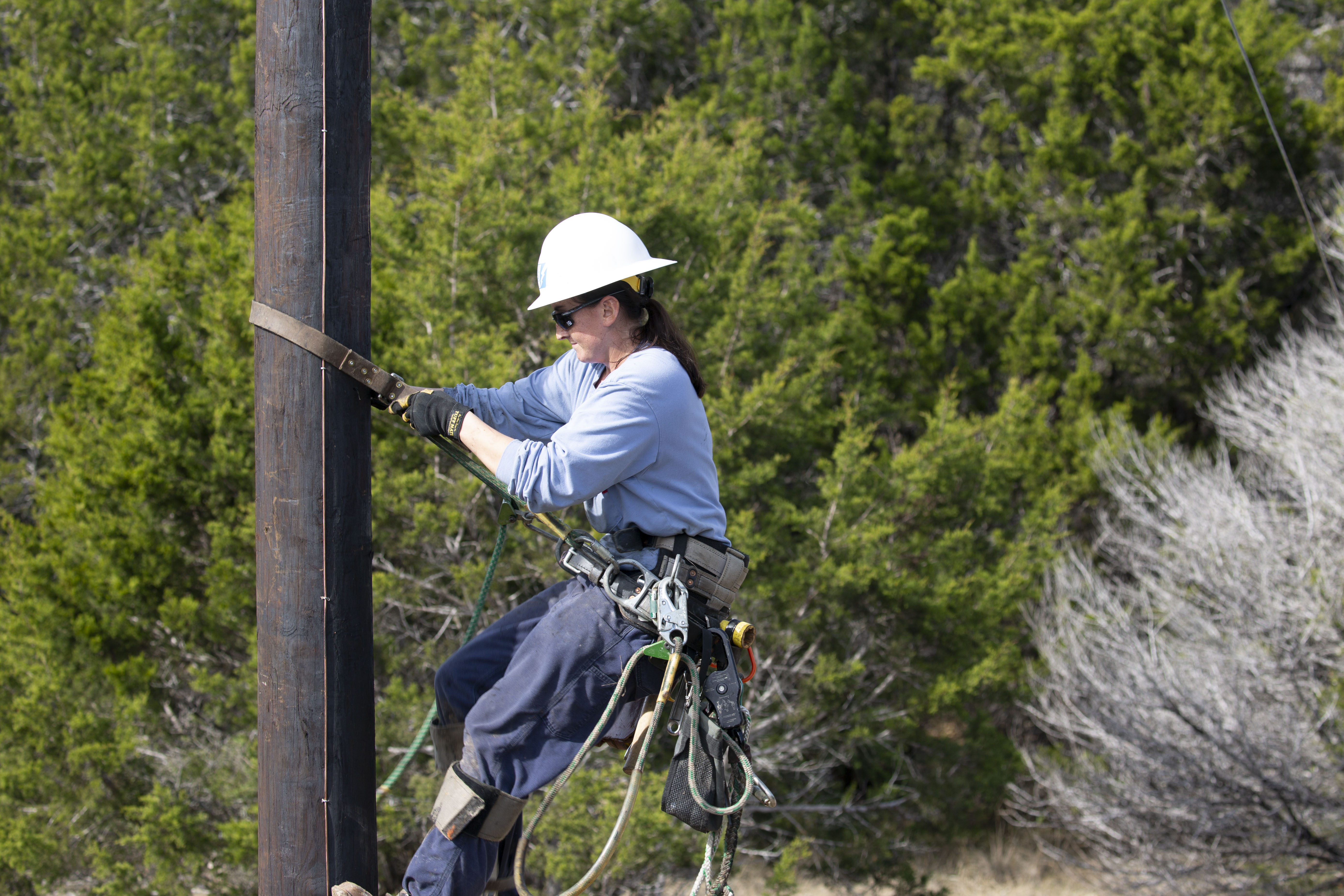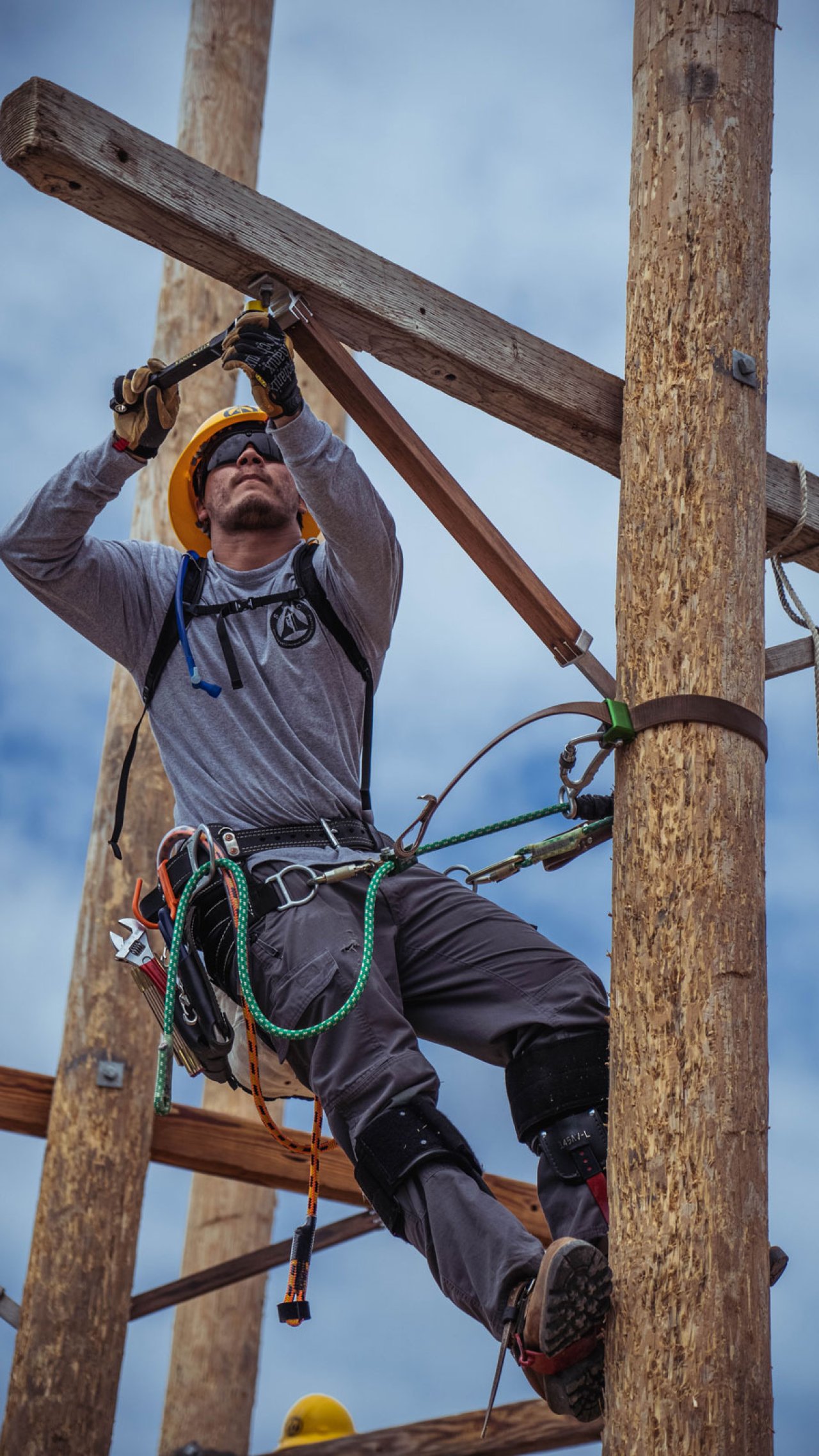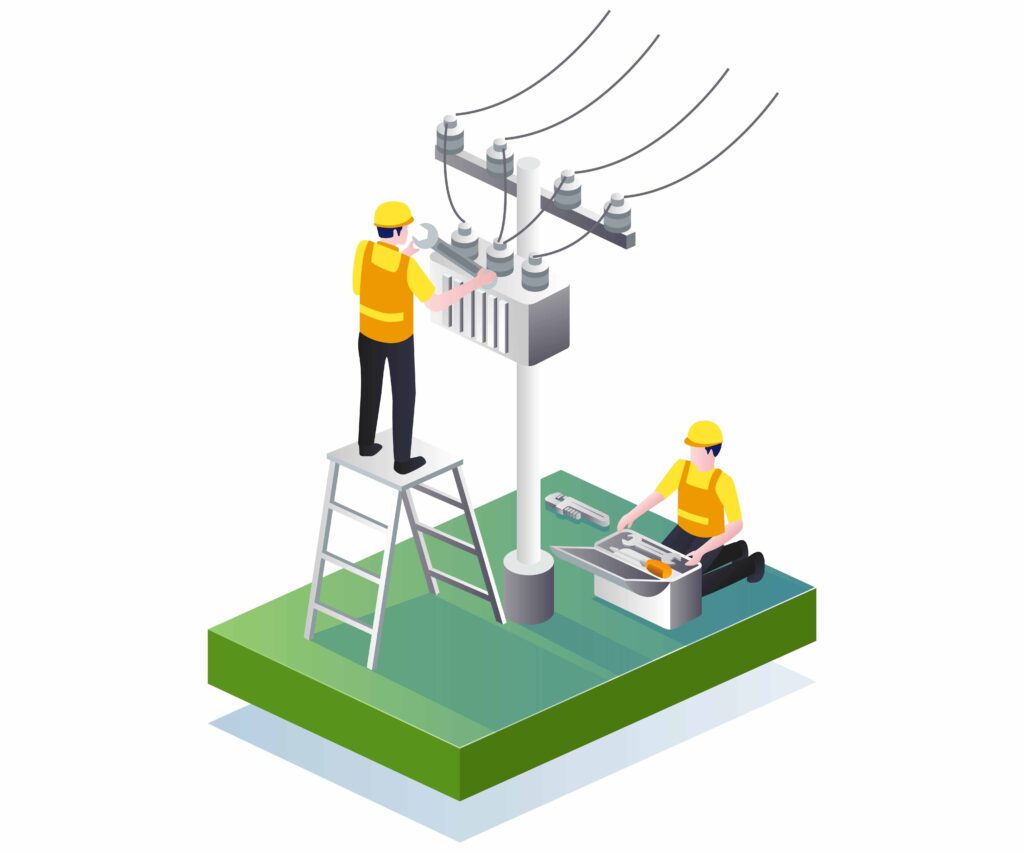A lineworker is a professional responsible for installing and maintaining electrical power systems. They often work with high-voltage lines and ensure electricity flows from power plants to houses and businesses.
Lineworkers, also known as line technicians or electrical linemen, are the backbone of the electrical industry. These skilled workers are the ones scaling towering poles and high elevations to repair wires and troubleshoot issues that disrupt the electrical grid. With a crucial role in both urban and rural infrastructure, lineworkers work in various weather conditions, often responding to emergencies to restore power during outages.
Safety is paramount in this field, requiring stringent adherence to protocols to protect both the lineworker and the public. Their expertise in the construction, maintenance, and repair of electrical distribution and transmission systems is essential for the reliability of electric utilities and the continuity of service that communities depend on daily.
The Role Of A Lineworker
The Role of a Lineworker is critical in keeping the energy flowing through power lines to our homes and businesses. These unsung heroes perform highly skilled tasks. Daily, they ensure the electrical grid operates smoothly. Their efforts bring power back after outages. Without lineworkers, modern life would grind to a halt.
Key Responsibilities
- Install and maintain electrical power systems.
- Inspect lines for potential hazards.
- Follow strict safety protocols to prevent accidents.
- Use specialized equipment to repair high-voltage lines.
- Respond to outages and emergencies, working quickly and efficiently.
- Collaborate with teams to plan and execute projects.
Work Environment
Lineworkers brave the elements as they perform their duties outside. The weather is a factor, with conditions ranging from heatwaves to ice storms. They often work at towering heights on poles and towers. The job requires physical strength and stamina. Lineworkers are always on call, especially during natural disasters. Their work setting is both challenging and dynamic.
Skills And Qualifications
To excel as a Lineworker, a mix of technical prowess, formal education, and hands-on training is vital. These enable Lineworkers to navigate the complexities of electrical systems safely and efficiently. Key skills and qualifications shape the backbone of this demanding career.
Technical Skills
Lineworkers must master a robust set of technical skills. These skills ensure effective and safe work practices.
- Electrical system knowledge: understanding power line components and operation.
- Problem-solving: quickly identifying and fixing electrical issues.
- Physical dexterity: performing tasks at heights with tools and equipment.
- Attention to safety: adhering to safety protocols to protect oneself and others.
Education And Training
Lineworkers typically start with foundational education, followed by specialized training.
| Level | Education/Training | Details |
|---|---|---|
| 1 | High School Diploma | Math and science courses form the groundwork. |
| 2 | Technical School | Electrical theory and practical skills are taught. |
| 3 | Apprenticeship | On-the-job training under experienced lineworkers. |
| 4 | Certifications | Specialized courses on safety and advanced techniques. |
Safety Precautions In Linework
Keeping lineworkers safe is a non-negotiable priority. Every day, these brave workers face high voltages and extreme heights. The right safety measures can mean the difference between life and death. Let’s highlight some key safety tactics and gear that keep these essential workers protected in the field.
Importance Of Safety Gear
Safety gear shields lineworkers from hazards. Each piece serves a purpose:
- Insulated gloves: Block electric currents.
- Hard hats: Protect heads from impacts.
- Safety glasses: Guard eyes from debris.
- Flame-resistant clothing: Prevent burn injuries.
- Dielectric boots: Insulate feet against electricity.
Regular gear checks ensure everything functions correctly. This step is as vital as the gear itself.
Emergency Procedures
In emergencies, quick reactions save lives. Lineworkers train regularly on emergency procedures:
| Situation | Response |
|---|---|
| Electrical Shock | Cut power and start CPR |
| Falls | Use fall arrest system, call for help |
| Injuries | First aid and medical response |
| Fire | Use extinguisher, evacuate if needed |
Drills embed these actions, making them second nature. Lineworkers also carry emergency contact info at all times.

Credit: www.electric.coop
Challenges Faced By Lineworkers
Lineworkers are vital for maintaining the power grid, yet they face many unique challenges. Every day, they confront conditions that test their mental and physical strength. Understanding these hurdles shines a light on the road they tread. This section explores the primary challenges that lineworkers grapple with while ensuring our lights stay on.
Weather Conditions
Weather does not discriminate and can pose significant threats to lineworkers. They must often perform their duties in extreme conditions:
- High winds that can make balancing on poles treacherous.
- Heavy rain that adds weight and hinders tool handling.
- Icy conditions that lead to slippery work environments.
- Scorching heat that can lead to dehydration and heat exhaustion.
Physical Demands
The job of a lineworker is not for the faint of heart. It demands peak physical fitness:
- Climbing tall poles requires endurance and strength.
- Lineworkers carry heavy equipment to great heights.
- Full-body dexterity is critical for safety and effectiveness.
Workplace injuries are also a concern. Lineworkers must constantly remain vigilant to avoid falls, electrical shocks, and other hazards.
Career Growth Opportunities
Embarking on a career as a lineworker brings not only immediate job satisfaction but also a wealth of growth opportunities. These skilled professionals ensure power systems are functioning safely and efficiently. With dedication, lineworkers can explore various advancement routes and specialties that enhance their skills and marketability in this dynamic field.
Specializations
As lineworkers gain experience, they can specialize in areas to meet specific industry needs. Specializing allows for deeper knowledge and a concentration on particular aspects of the trade. Common areas of specialization include:
- Transmission Linework: Focus on high-voltage power transmission.
- Distribution Linework: Deliver electricity to end-users.
- Substation Maintenance: Manage and repair substations that control power flow.
- Fiber Optics: Work with communication lines, broadening career scope.
Advancement Paths
With time and experience, lineworkers can move up the career ladder. Here’s a snapshot of potential advancement paths:
| Starting Position | Advancement | Position Responsibilities |
|---|---|---|
| Apprentice Lineman | Journeyman Lineman | Perform tasks independently, mentor apprentices. |
| Journeyman Lineman | Lead Lineman | Lead crews, plan projects. |
| Lead Lineman | Foreman/Supervisor | Supervise operations, ensure safety compliance. |
Further growth can include managerial roles or specialized consultant positions that continue to challenge even the most seasoned professionals.

Credit: www.lineworker.com
Impact Of Technology On Linework
Lineworkers play a crucial role in maintaining our electrical grid. Technology now helps them work safer and smarter. From high above the ground, these workers keep power flowing to our homes and businesses. Let’s explore how technology changes this high-risk, essential job.
Use Of Drones
Drones are changing the game for lineworkers. These flying helpers reach places people cannot. Here’s what they do:
- Inspect power lines without climbing.
- Spot problems from the sky.
- Carry tools to workers up high.
Using drones means less risk for workers. They ensure quick repairs and consistent power supply.
Advancements In Equipment
New tools make linework safer and faster. The latest gear provides many benefits:
| Old Tools | New Tools | Benefits |
|---|---|---|
| Manual tools | Power-assisted | Less strain |
| Heavy safety gear | Lightweight | More comfort |
| Fixed ladders | Adjustable platforms | More flexibility |
Protective clothing with smart materials also keeps lineworkers safe from electric shocks. Every piece of this new equipment means better performance.
Community Appreciation And Support
Lineworkers play a crucial role in our communities. They work tirelessly to ensure electricity flows into our homes and businesses. Yet, often their hard work goes unnoticed. It’s time we shine a light on their efforts and show our support. Communities can foster a sense of appreciation through various initiatives.
Recognizing Lineworkers
A simple thank you goes a long way. Public recognition events celebrate the dedication of lineworkers. Local governments can offer appreciation days to honor their work. Schools and community centers might invite lineworkers to speak about their jobs. This shows young people the importance of this career.
Public Outreach Programs
Building bridges between lineworkers and the community strengthens support. Outreach programs engage residents in energy education. These initiatives can include school visits, where lineworkers demonstrate safety and how electricity reaches our homes. Interactive workshops allow participants to ask questions and learn more about their daily work.
- Energy fairs bring fun and learning together.
- Safety demonstrations help prevent accidents.
- Community service projects highlight their skills and dedication.
Frequently Asked Questions
Is A Lineman The Same As An Electrician?
No, a lineman and an electrician are not the same. A lineman works on high-voltage power lines outdoors, while an electrician typically handles lower-voltage systems and indoor electrical work.
How Long Is Lineman School In Texas?
Lineman school in Texas typically lasts between 10 to 15 weeks, depending on the program and institution offering the training.
What Do Linemen Do?
Linemen install, maintain, and repair electrical power systems and telecommunications cables. They work on power lines and ensure the reliable delivery of electricity to homes and businesses.
Is Being A Lineworker Hard?
Being a lineworker is challenging due to the physical demands, work at heights, and weather conditions. It requires rigorous safety protocols and problem-solving skills.
Conclusion
Embarking on a career as a lineworker promises challenges and rewards in equal measure. It’s a path of service, requiring skill and bravery. With the right training and dedication, lineworkers keep our world powered. To those up for the task, the future shines bright, charged with opportunity.

